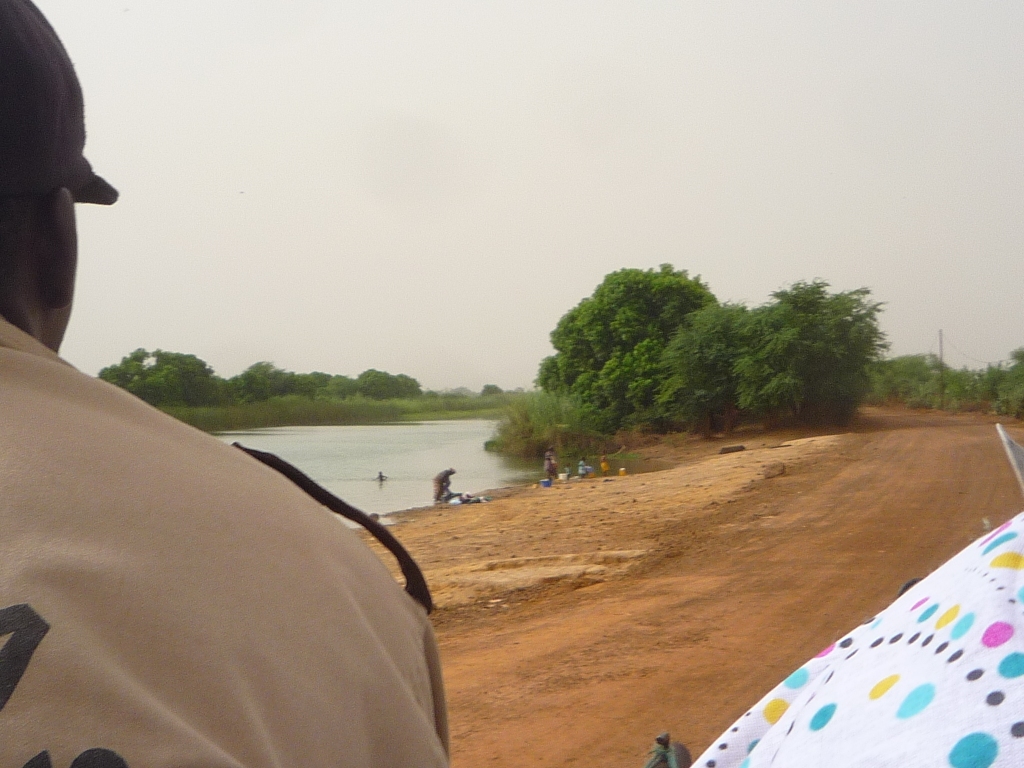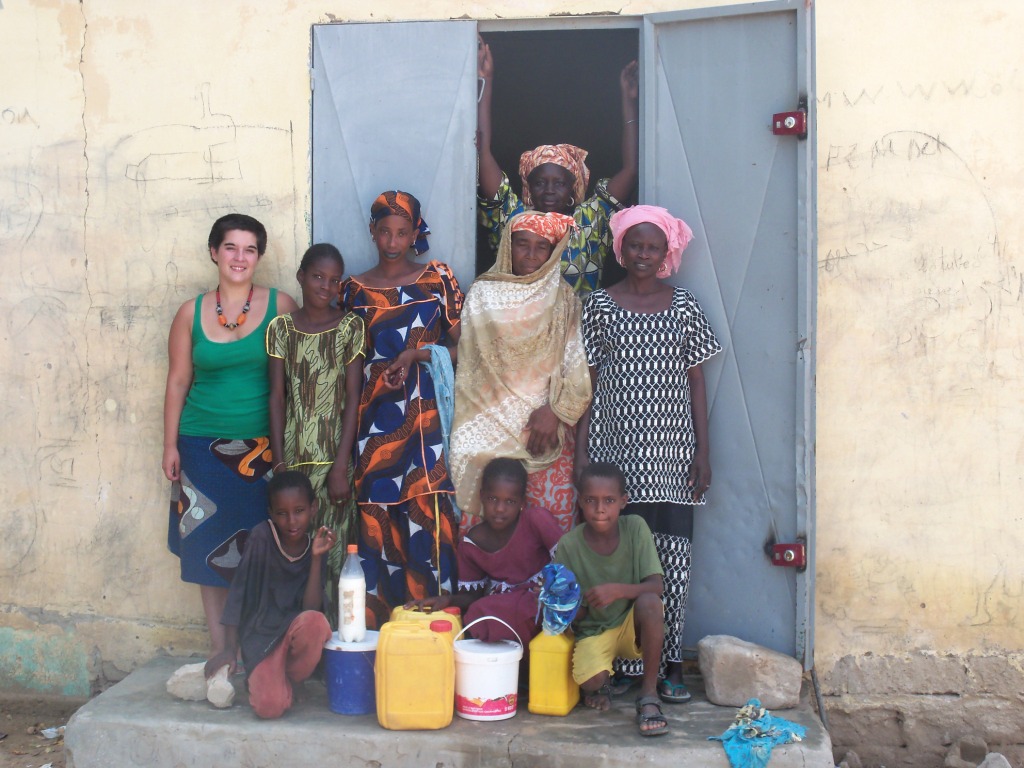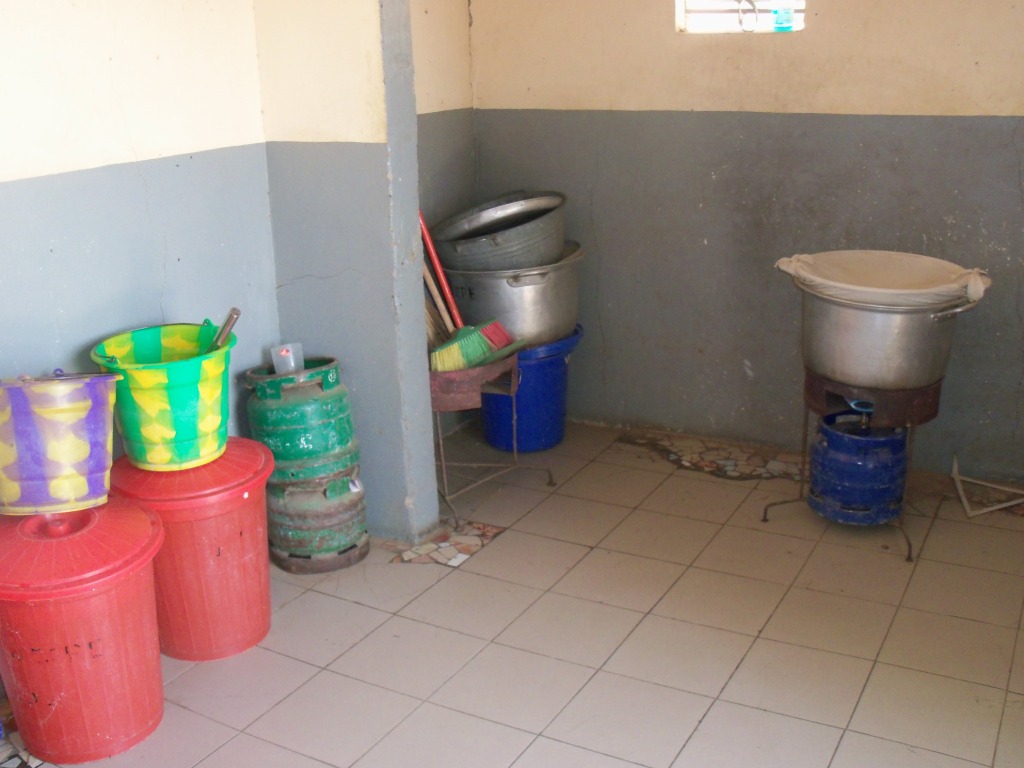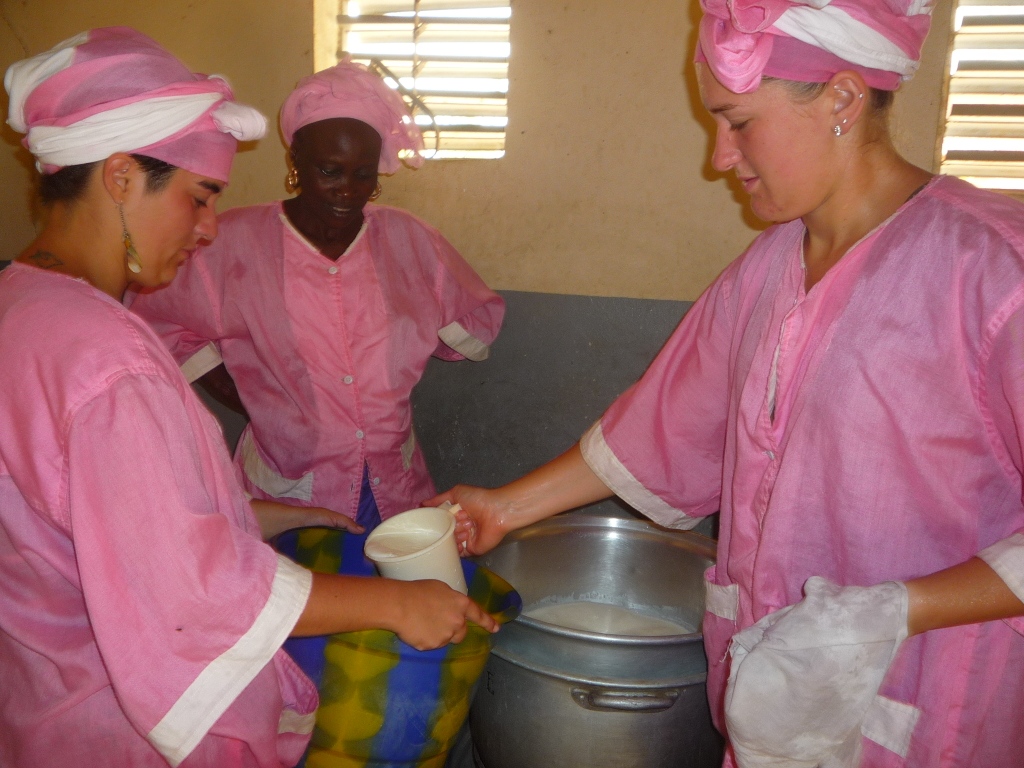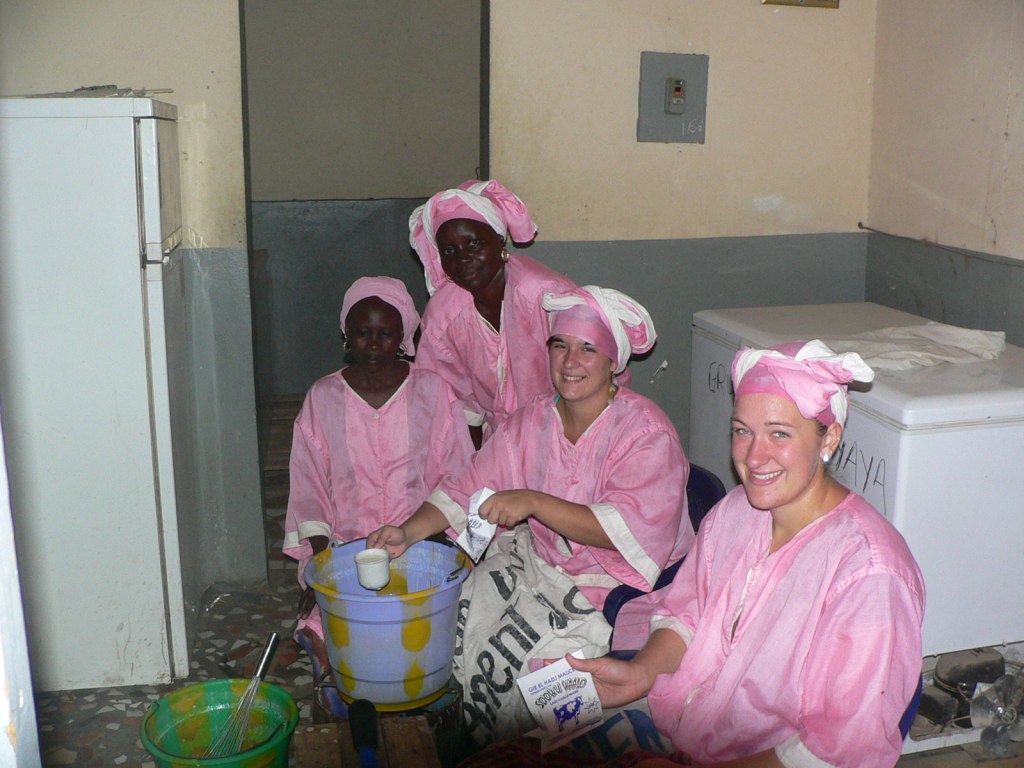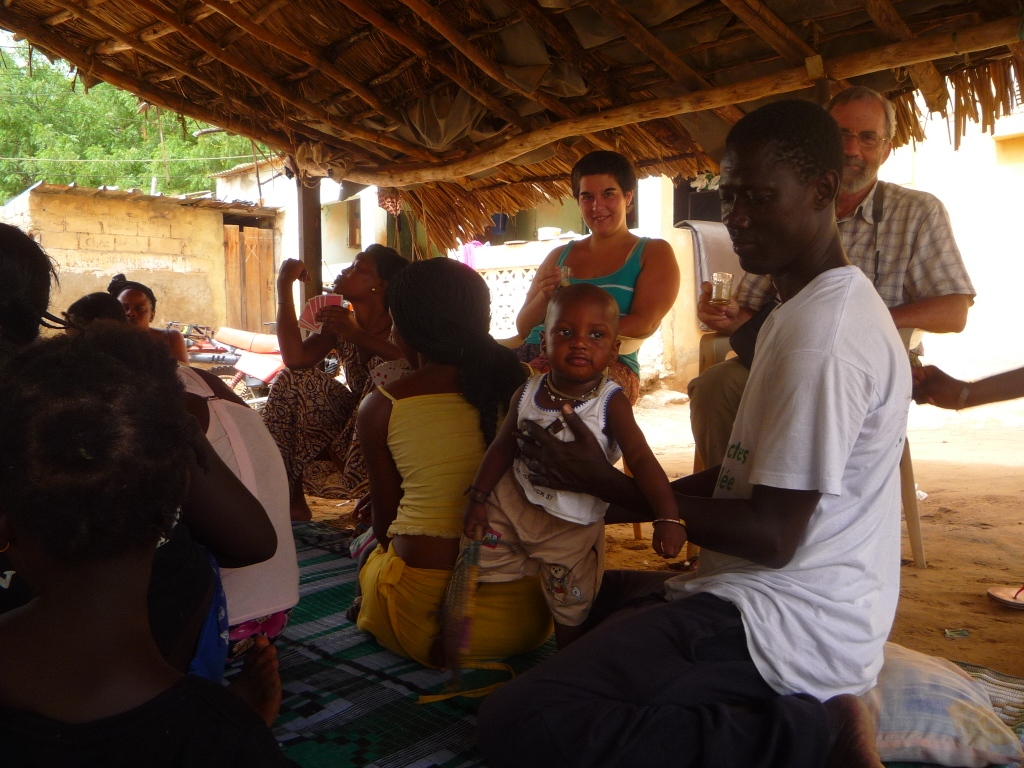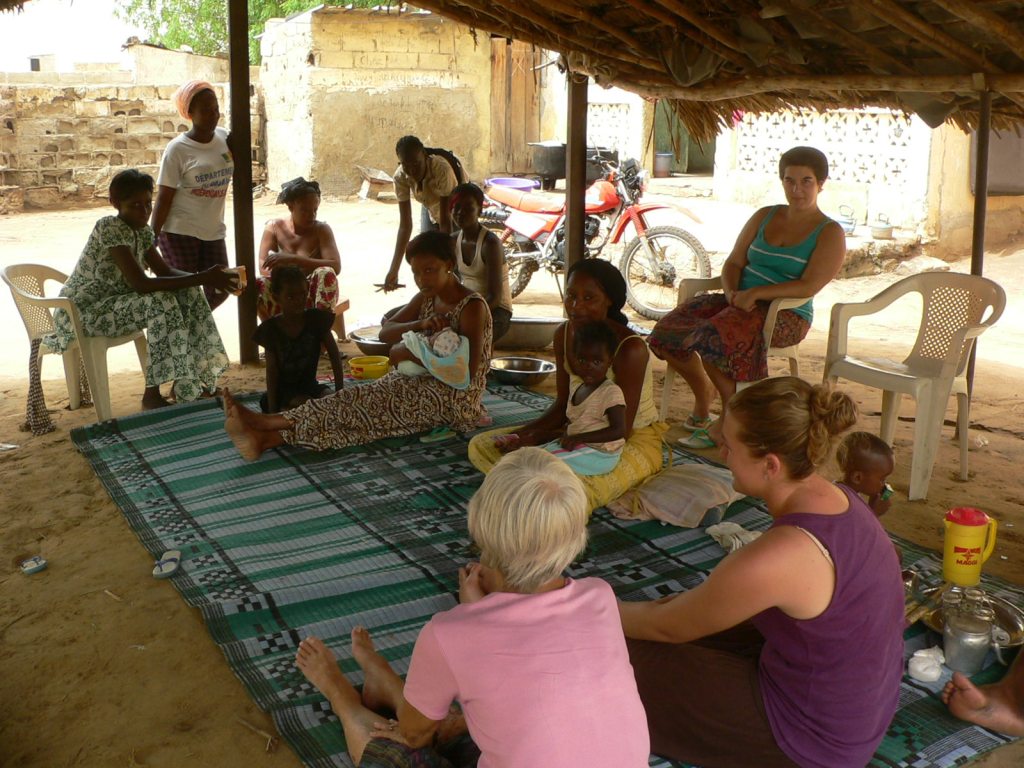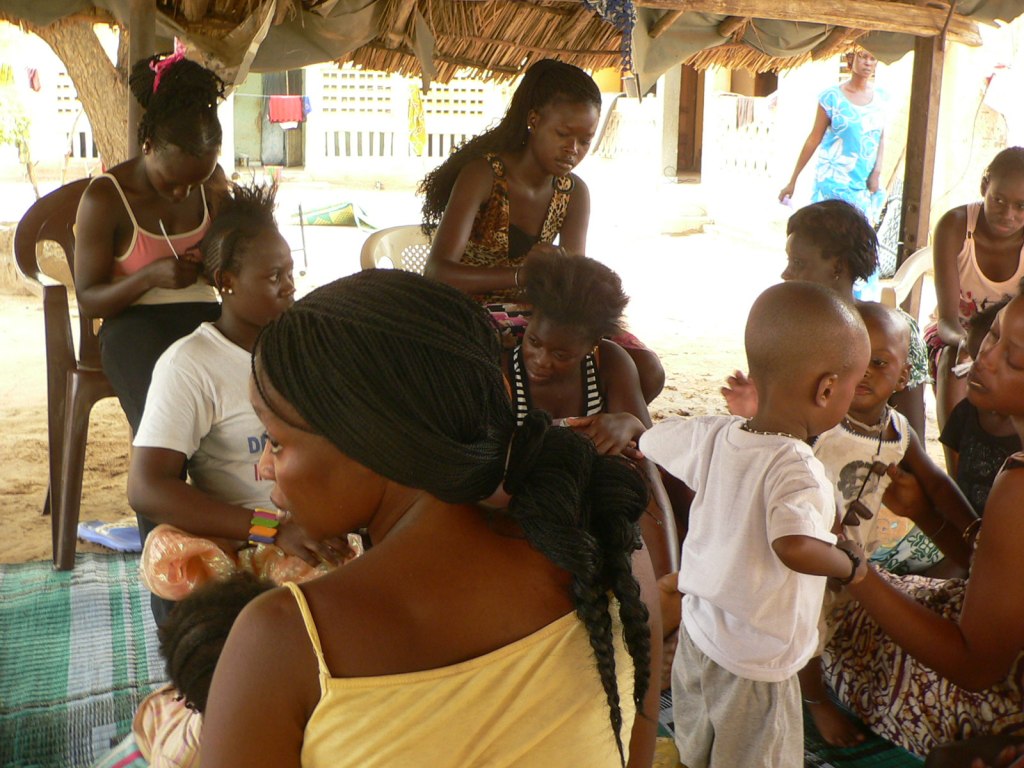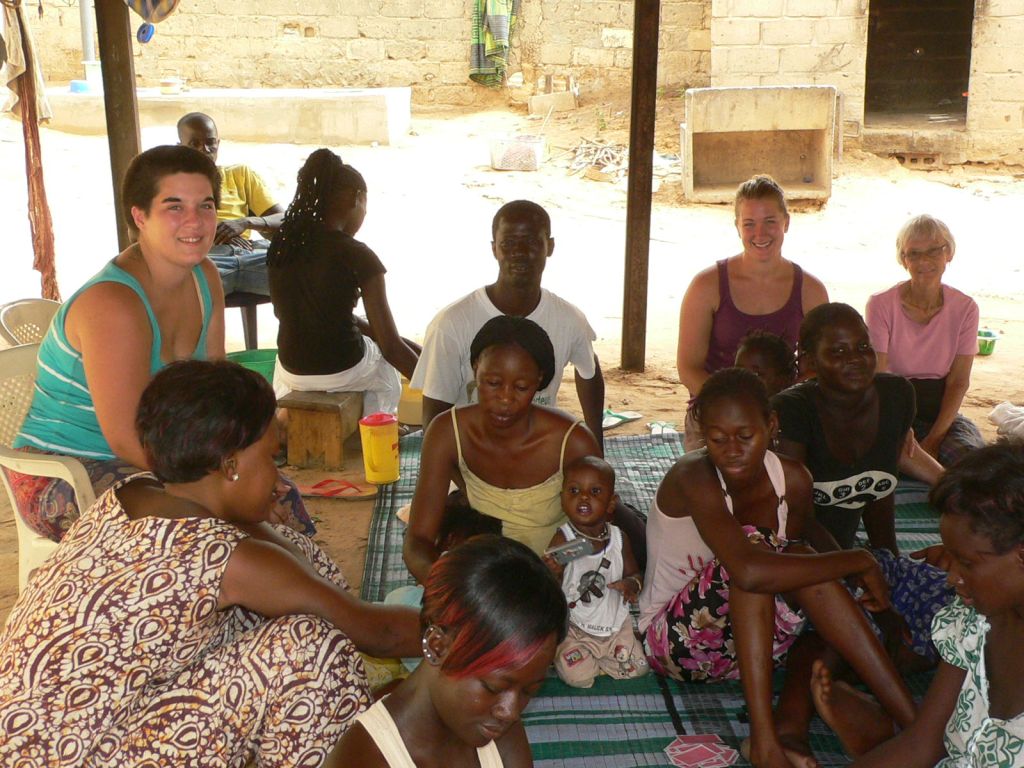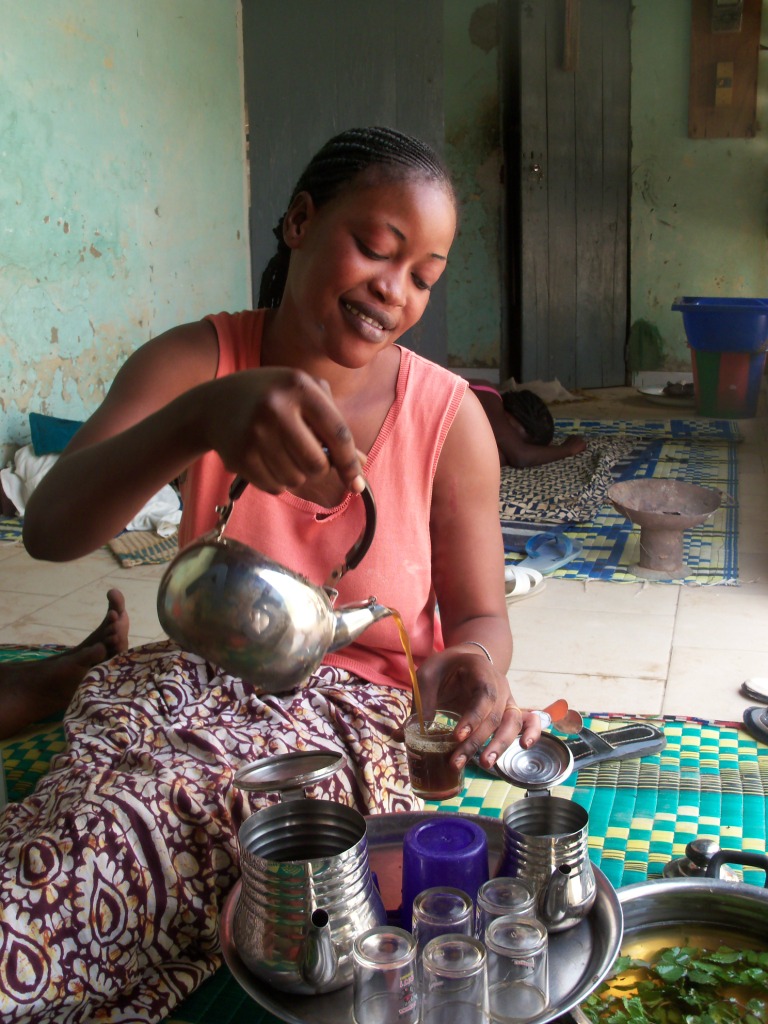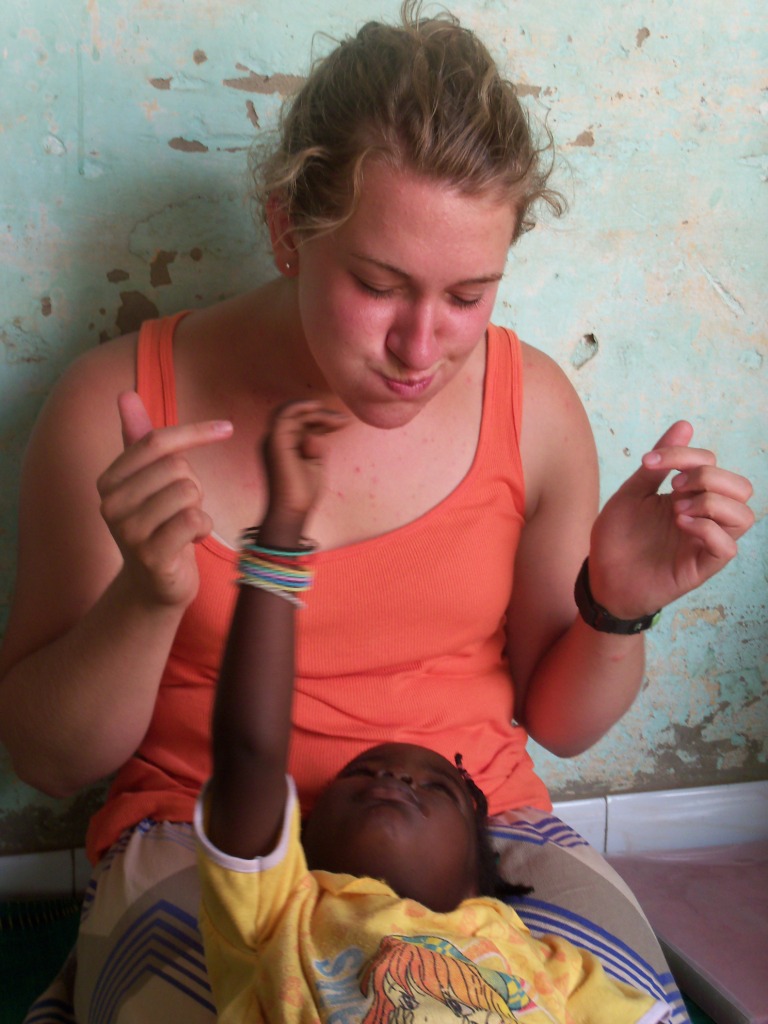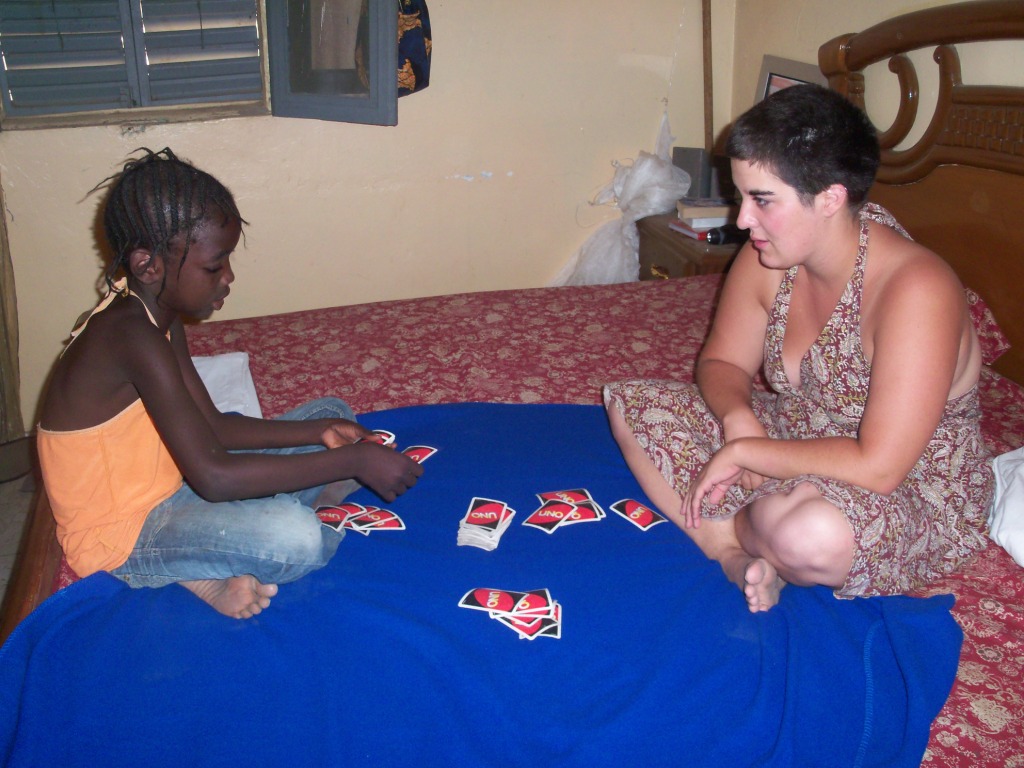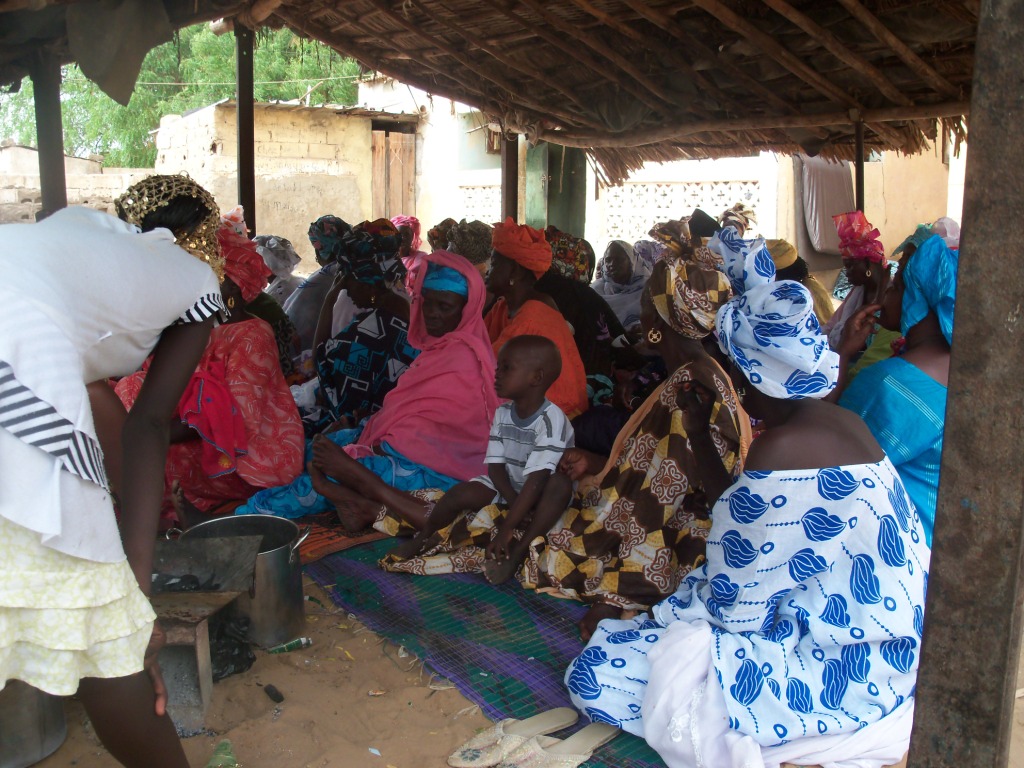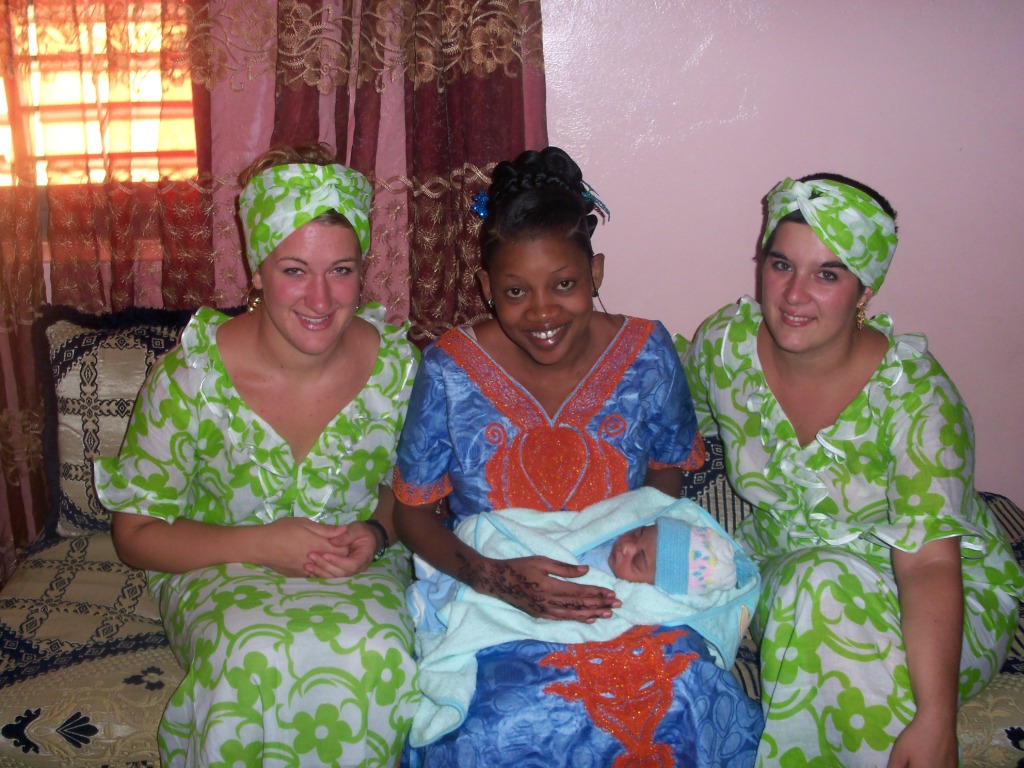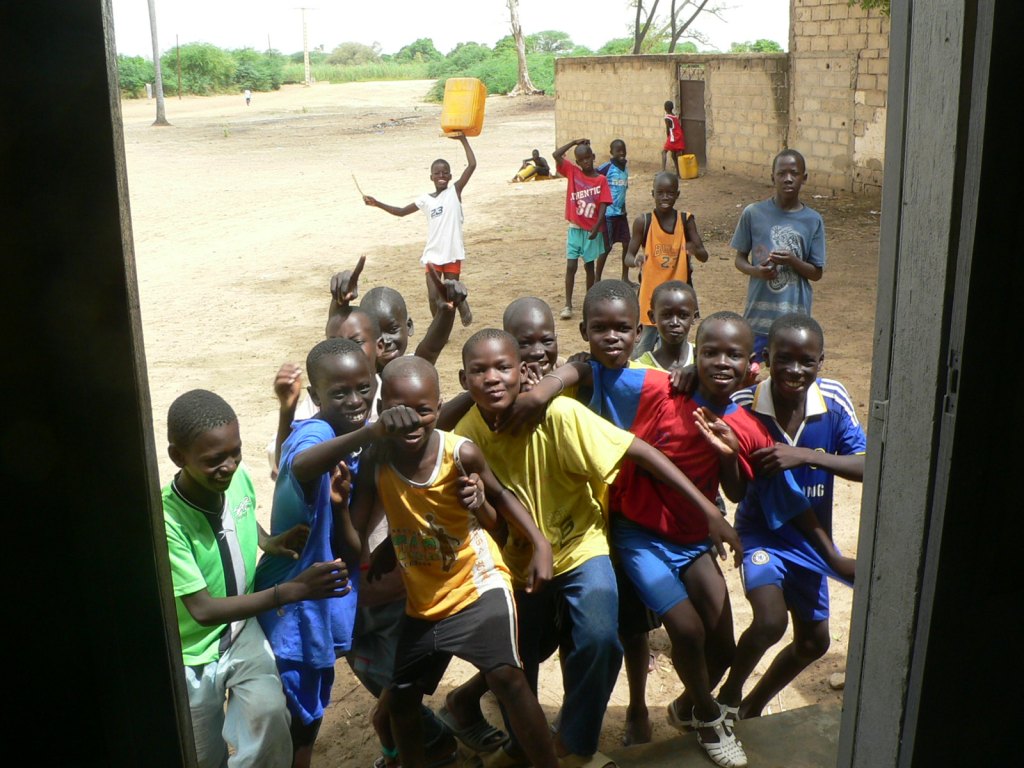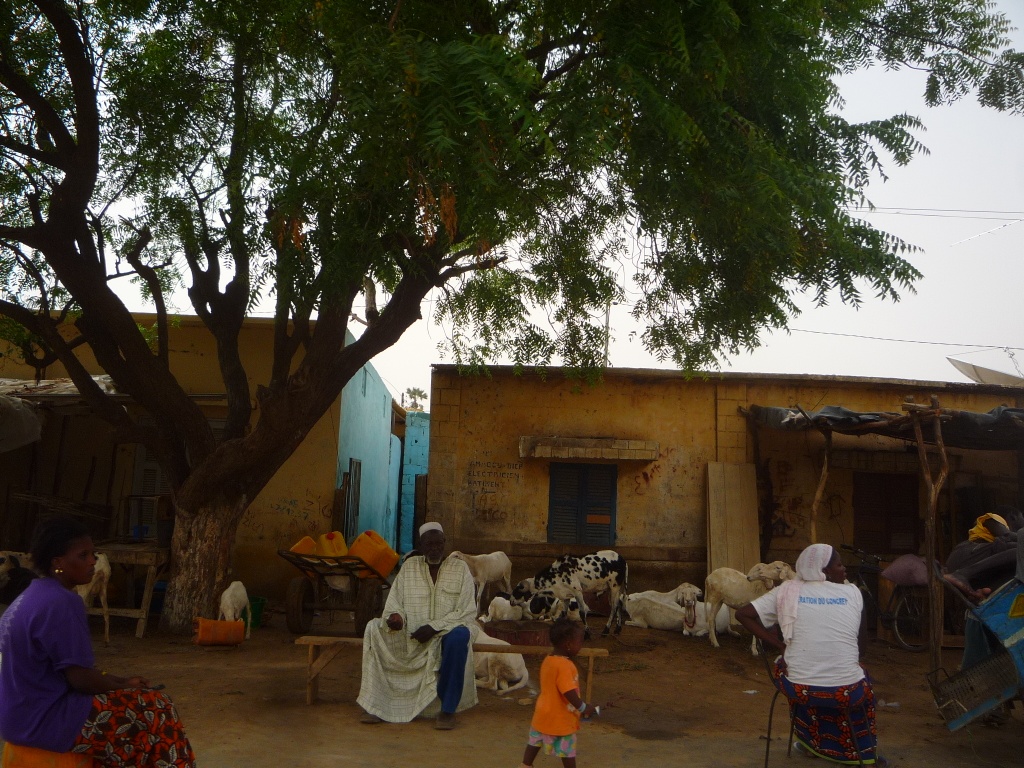Service Location: Richard Toll/Ndombo
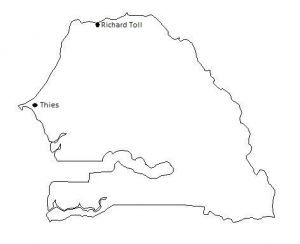
Erin and Leah are working with a women’s organization to process milk. They are located near Richard Toll which is across the Senegal River from Mauritania. They jointly wrote the following description of some of their experiences.
Erin and Leah’s service location is in Ndombo, a small village which is 5 km east of Richard Toll. It is situated on a branch of the Senegal River which serves as a major focal point of village culture and daily life. Upon entering Ndombo one can commonly see people of all ages bathing, washing rice, and laundering clothes on the river banks.
Although Leah and Erin remain within Senegal’s borders, life in Ndombo contrasts drastically with life in Thiès, and has provided them with new and fascinating cultural experiences. Life in Ndombo is generally steady and based on a solid routine. Leah and Erin wake up between 8 a.m. and 8:30, perform a couple household chores, and then walk to Unite Laitiere (a dairy), their service assignment.
A variety of plastic containers full of milk brought in by village women await Erin and Leah’s arrival. Leah and Erin then help two fellow workers to test, pasteurize, sweeten and package the day’s milk. The packages are stored in a freezer and are either sold to local villagers or shipped out to larger cities. This whole process generally takes 2 to 2 ½ hours a day. So Erin and Leah spend the rest of their time helping prepare lunch, relaxing, playing games, or watching the World Cup with their family.
Although life in the village is slow and steady, sharing a common space with 30 family members, spanning four generations, provides Erin and Leah with their fair share of excitement. Within the first week one of their sisters gave birth to her first child, a baby boy. Following Senegalese tradition, a naming ceremony was held a week after the birth. This ceremony took place in their home, and in typical Senegalese fashion nearly the entire village attended, dressed in their finest outfits. The morning consisted of making the traditional breakfast of millet and milk and the confirmation and announcement of the baby’s name (Samba). Immediately after breakfast three or four men slaughtered a ram which the women prepared for the traditional lunch. The afternoon was more relaxed and mainly consisted of socializing and admiring everyone’s beautifully ornate attire.
Photo credits: Leah, Ron, Sally Jo
